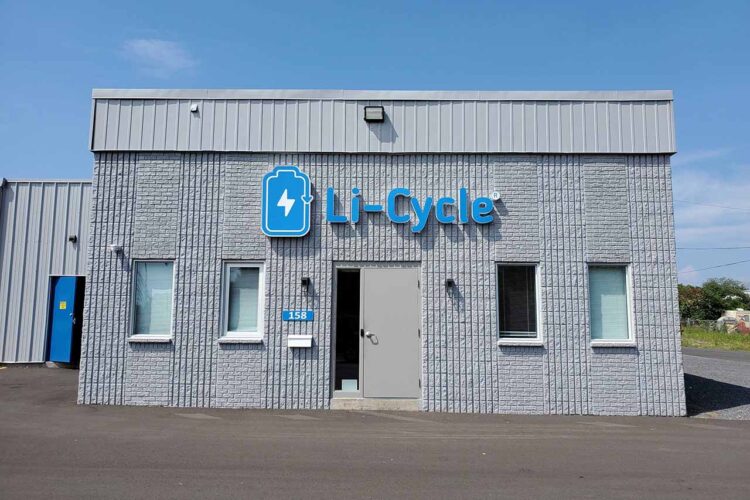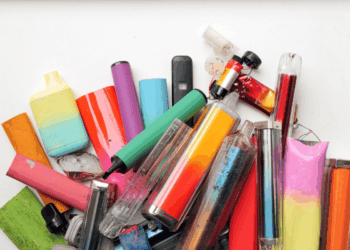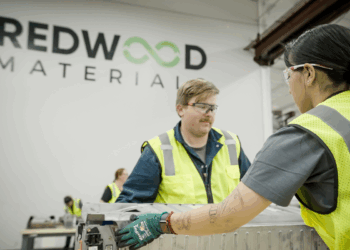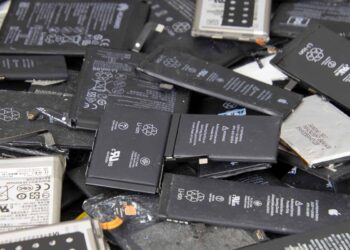Li-Cycle saw overall revenue gains in 2022 even with a softer fourth quarter, it announced in late January.
Toronto-based lithium-ion battery recycling startup Li-Cycle has been expanding across North America, working to build a Hub and Spoke model of recycling facilities.
Revenues for Q4 of 2022 came to $3.0 million, with full-year revenue totaling $13.4 million. These figures compare with $4.4 million for Q4 in 2021 and $7.3 million for that full year.
According to a press release, in Q4 revenues from product sales and recycling services decreased to $3.5 million from $4.1 million in Q4 of 2021. The company did enjoy higher black mass sales, but those were more than offset by the decrease in metal prices, primarily cobalt.
The total Q4 revenue included an “unfavorable non-cash fair market value (FMV) pricing adjustment of $0.5 million, relating to end-of-period metal prices for prior-period black mass sales,” the press release stated.
In terms of operating expenses, those increased to $39.4 million, compared with $18.5 million in Q4 of 2021, due to the company’s expansions and raw material and supply costs.
The company’s net loss in Q4 of 2022 was about $33.9 million, compared with $204.9 million in Q4 of the previous year. 2021’s net loss included a non-cash loss of $152.7 million related to Li-Cycle’s combination with Peridot Acquisition Corp. to take Li-Cycle public.
Adjusted earnings before interest, taxes, depreciation and amortization (EBITDA) loss was $32.6 million in Q4 of 2022, compared with $11.7 million in the same period of 2021.
Before adjustment, full-year revenues from product sales and recycling services were $15.6 million, up from $6.5 million in 2021, due to the operational expansions. However, the company had an unfavorable non-cash FMV pricing adjustment of $2.2 million, bringing it to a final full-year revenue number of $13.4 million.
Operating expenses for 2022 increased to $124.6 million versus $39.2 million in 2021. Annual net loss was about $53.7 million, down from $226.6 million in 2021.
Adjusted EBITDA loss was approximately $100.7 million in 2022, compared with $26.2 million in 2021, due to higher staffing and development costs.
In addition, Li-Cycle raised $250.0 million in funding in 2022 and plans to change its financial year end from Oct. 31 to Dec. 31.

























